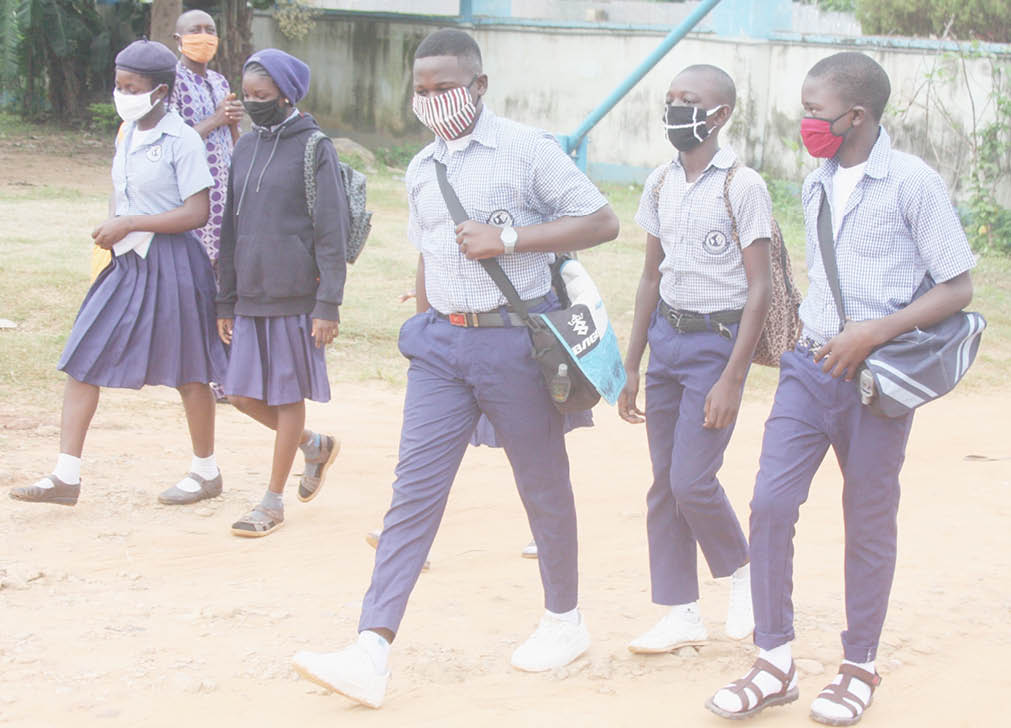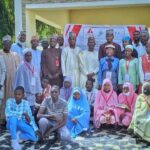Before the outbreak of the new coronavirus pandemic, Nigeria was already struggling with a learning crisis, with over 60 million people unable to read and write in any language.
This is in addition to an estimated 11 million out-of-school children in the country; one of the unsavoury education indicators that have slowed growth of the sector.
During the International Literacy Day (ILD) in January 2020, the Education minister, Mallam Adamu Adamu, said millions of school children were not attaining the required learning outcome benchmarks.
He said a large number of children in schools failed to demonstrate suitable skills, knowledge and values upon completion of studies and that illiteracy remained a big social and cultural problem that could hinder the economic development of any society; especially where large numbers of the citizens can neither read nor write.
Although the COVID-19 has provided the world with a new array of problems, education is probably the worst hit.
Schools are not only shut down, teachers and students have been under lockdown with little or no learning.
Experts say the situation will definitely have a negative impact on education outcomes.
Education is clearly a victim of the pandemic; it is in the same breath the solution to the longer-term recovery from COVID-19, as education creates the health workers, the entrepreneurs and the engineers of the future.
Nigeria, along with many other countries now have a more challenging baseline and much larger inequality in educational outcomes to confront.
With exit classes in secondary schools across returning to the classrooms to prepare for their terminal examinations, most students, teachers and parents have expressed fear of mass failure due to insufficient time for students to get back to their books after spending over five months at home with no classroom teaching.
Some experts who spoke to Daily Trust said Nigeria failed to implement the worked out plan to give the right type of education where learning outcomes will be to the benefit of the nation.
A teacher with a private school, who wished to be addressed as Happiness, said Nigeria is battling with a learning crisis because it puts more emphasis on certificates than on acquired knowledge.
“Students read to pass examinations and not to acquire knowledge and after the examination many cannot remember what they were taught or make reference to it in their daily lives, and at the end they have a certificate but without the needed acquired knowledge.”
Happiness pointed out that even the teachers impacting the knowledge were mostly certificate holders who could not find their dream jobs and needed to pay their bills, “What do you think will be the outcome of learning from such people?” she asked.
A Professor of Education, Curriculum and Instructions, University of Abuja, Emmanuel Ndam Danladi, who spoke to Daily Trust on phone said it was important to return to what the education system provided.
“It said by the time you finish primary school, you go to junior secondary school and spend three years and by the time you graduate, you would have acquired skills, knowledge, attitude and value that will make you a better Nigerian,” he explained.
He said also that, “By then you are educated, that whether you go further or not you can do something and be self-reliant, but we are not implementing it.”
Prof Danladi then asked, “Where are the laboratories that we have at the junior secondary level for children to learn carpentry, science and technology?”
He said, “You cannot neglect what you are supposed to do and expect good results, unfortunately that is what Nigeria is doing.”
Addressing issues of learning outcomes
Prof Danladi said to be successful in learning, is not just waking up and gate crashing, but a very long process and “you have to organise yourself and the most important concept in trying to achieve success is the curriculum.”
He said learners are expected to acquire the learning experiences that will be in their heads and make them better people. That is whether exams are coming today or tomorrow, they are not afraid because they have already acquired what the curriculum is providing for them – which is a specific set of learning experiences or contents.
He said that is what is neglected in Nigeria and that now COVID-19 is waking up certain realities that attention was drawn to long ago.
“Today, we are looking for an environment that will overcome the negative impact of COVID-19 so that our children can pass. Yes, miracles can happen but it depends on our faith and this time our faith is in providing the necessary ingredients that these children were supposed to have gone through,” he said.
“If they attended schools where there are no buildings, they are sitting on the floor, no books, no library, teachers who are there are not paid and they are not even qualified, how do you expect a miracle to happen?” he asked.
Meanwhile, the FCT spokesman of the Nigerian Union of Teachers (NUT), Mr Samson Haruna, said the devastating effect of COVID-19 on the education system is not new to them.
For students to write WAEC, he urged schools to have enough WAEC series and form students into clusters for teachers in specific subjects to handle each cluster using the subjects, a few days before each exam.

 Join Daily Trust WhatsApp Community For Quick Access To News and Happenings Around You.
Join Daily Trust WhatsApp Community For Quick Access To News and Happenings Around You.


